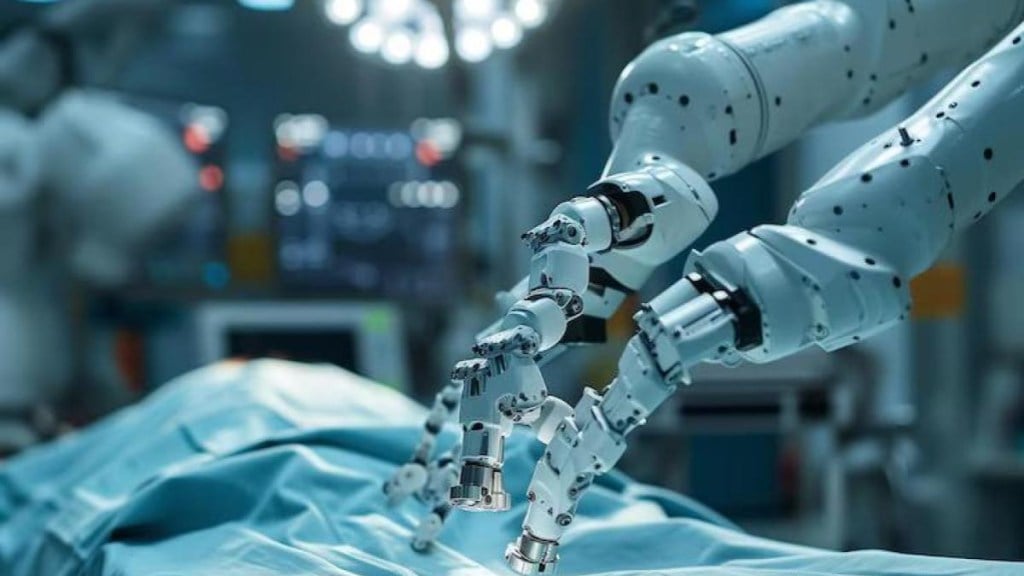MedTech company Meril Lifesciences has launched MISSO, a surgical robotics system for knee replacement procedures, achieving a cost reduction of approximately 66% by designing, engineering, and manufacturing the system entirely in India.
“This was in line with the government’s plans to reduce dependence on imports and manufacture domestically. With MISSO knee replacement robot by Meril, India can become self-reliant in robotics surgery,” Manish Deshmukh, head of marketing, India & Global, at Meril said.
Most robotic systems in India are imported, typically costing around Rs 5 crore, Deshmukh said. Total knee replacement involves replacing a damaged knee joint with an artificial joint made of metal and ultra-high molecular weight polyethylene.
According to company data, three out of 10 people over the age of 40 in India suffer from osteoarthritis of the knee. Although knee replacement surgeries have doubled in five years, the annual need for such surgeries is 7-8 times higher than the current number performed.
Lower equipment costs allow hospitals to recover expenses in three years, compared to five years for imported systems, ultimately reducing patient costs, Deshmukh said. Knee replacement costs range from Rs 3.35 lakh in smaller hospitals to Rs 5.5-6 lakh in larger hospitals. “Prohibitive costs have limited access, which we intend to change by bringing robotic surgery to Tier II and III cities,” he added.
Another challenge is the shortage of trained robotic surgeons, with only 3,000 capable of performing these surgeries. Meril is expanding its training programs to address this gap and reduce turnaround time for service-related requests.
A key feature of MISSO is its smaller footprint, making it suitable for smaller hospital operating rooms in Tier II and III cities. The system’s integration of AI reduces pre-operative planning time by 83%, enabling personalised pre-operative plans tailored to each patient’s bone structure.
Meril aims to install over 1,000 units in the next three years, starting with manufacturing 200 units at its Vapi facility in the first year, Deshmukh said. For Meril, the orthopedic segment is a Rs 1,000 crore business, expected to grow to Rs 1,500 crore. The company’s medical vertical turnover is around Rs 3,500 crore. Meril is also developing applications for hip, shoulder and ankle replacements, as well as arthroscopy, spinal surgery, and trauma surgeries with software modifications.
Dr Santosh Shetty, consultant joint resurfacing and computer-navigated joint replacement surgeon at Surana Group of Hospitals, Mumbai, stated that robotic systems have made joint replacement surgeries less painful with shorter recovery times for patients.
Meril plans to export MISSO to the US and Europe after regulatory approvals. Part of the Gujarat-based Bilakhia Group, Meril manufactures medical solutions in vascular intervention devices, orthopedic implants, robotics, endo-surgery, ENT products, and in-vitro diagnostics.
The company has roped in cricketer Mahendra Singh Dhoni for creating awareness about robotics surgery.








